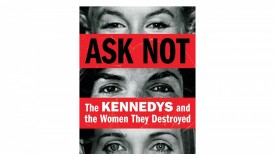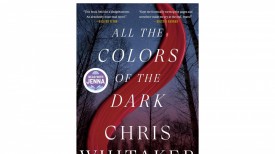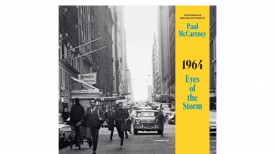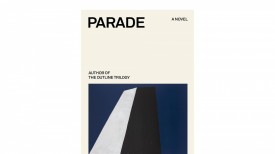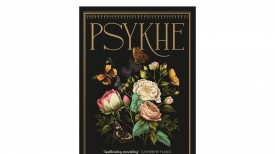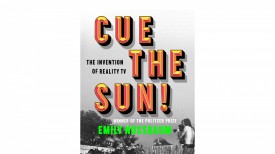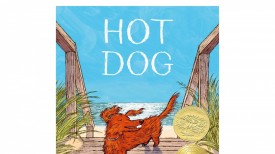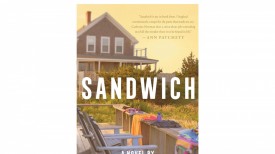'All Things Are Too Small: Essays in Praise of Excess' by Becca Rothfeld Book Review: A Provocative Manifesto for Embracing Excess
Becca Rothfeld's debut essay collection, "All Things Are Too Small," boldly challenges the prevailing trend of minimalism, advocating for a return to excess and abandon in all aspects of life. With biting wit and depth, Rothfeld critiques the cultural obsession with balance and restraint, arguing that it has led to spiritual impoverishment and creative stagnation.
Through essays covering topics from mindfulness to decluttering and David Cronenberg, Rothfeld explores how the pursuit of equality and democracy in aesthetics has flattened and sanitized our culture, stripping it of its richness and vitality.
With humor and insight, she calls for a reclaiming of imbalance, obsession, and gluttony, urging readers to embrace the unpredictable and the provocative. The book is a bold and captivating manifesto for the restoration of vitality and ravishment in every aspect of our lives.
The Author
Rothfeld, a prominent non-fiction book critic for The Washington Post and editor at "The Point" and "The Boston Review," debuts with "All Things Are Too Small." A PhD candidate in philosophy at Harvard, Rothfeld's essays have appeared in prestigious publications like The New Yorker and The Atlantic.
Her work challenges minimalist trends, advocating for an embrace of excess and abandon in life and literature. With a keen interest in aesthetics and German philosophy, Rothfeld's writings delve into the complexities of moral value and human beauty.
Despite her philosophical pursuits, Rothfeld is also an avid hiker, finding solace in nature amidst her intellectual endeavors.
Unveiling Modern Assumptions
According to The Guardian, as an American journalist and critic for esteemed publications like The New Yorker and The New York Times, Rothfeld challenges contemporary assumptions with wit and intellect. She critiques the glorification of minimalism, arguing for the virtues of excess and abundance. Through essays encompassing topics from literature to mindfulness, Rothfeld offers refreshing perspectives and unapologetically questions societal norms.
With a keen eye for detail, she dissects the pitfalls of meditation and laments the decluttering of contemporary literature. Rothfeld fearlessly delves into taboo subjects like sex and desire, exposing the stifling conservatism of certain writers. Despite her appetite for exploration, Rothfeld's writing occasionally veers into excess, yet her brilliance as an iconoclast remains undeniable.
The reviewer concluded that the book is an exciting and thought-provoking read that will make readers reevaluate their opinions on literature and current life.
READ ALSO: 6 Books Written By Women to Nurture Happiness and Wellness
Celebration of Abundance
An article by The New York Times said that the book offers a vibrant critique of minimalist culture, celebrating maximalist prose and embracing abundance. With eloquence and depth, Rothfeld navigates diverse topics, from sexuality to literature, challenging prevailing norms with humor and rigor.
Rothfeld's essays blend high and low culture, inviting readers to reconsider the value of extravagance and aimlessness in the human experience. Through her nuanced exploration, she encourages a shift away from austerity toward a celebration of richness and complexity. With references ranging from Éric Rohmer to David Cronenberg, Rothfeld presents a compelling argument for the importance of abundance in art and life.
The reviewer noted that Rothfeld's work provokes thought and reflection, inviting readers to question societal norms and embrace the beauty of excess. Overall, the book is a captivating exploration of the power of maximalism in a world obsessed with minimalism.
Exploration of Desire and Fulfillment
Kirkus Reviews articulated that Rothfeld's collection of essays offers intellectual nourishment alongside a celebration of erotic transcendence. As a philosopher, essayist, and critic for the Washington Post, Rothfeld delves into the desirability of excess in life and art. She critiques societal norms that constrain desire, from decluttering to sexual consent, arguing that justice merely scratches the surface of true fulfillment.
With incisive analysis, Rothfeld challenges minimalist literature and the sanitized portrayals of romance, advocating for the richness of abundance and sensuality. Her exploration spans diverse topics, including the films of Rohmer and the symbolism of eating, all woven together with sharp observations and fertile ideas.
The reviewer stated that while Rothfeld's essays may occasionally lose focus amidst their richness, her writing reflects a curious mind and a yearning body, offering stimulating food for thought alongside the pursuit of erotic fulfillment.
RELATED ARTICLE: 7 Best Self-Help Books to Foster Personal Growth
© 2023 Books & Review All rights reserved.
Popular Now
1
Books to Read After 'Fourth Wing': Top Picks for Fantasy and Romantasy Fans

2
‘The Secret Public’ by Jon Savage Book Review: An Insightful Look Into the LGBTQ Influence

3
Stephanie Regalado's 'If They Only Knew' Column Is Now A Book, Unleashing 60 Anonymous True Stories to Empower Women

4
'No Wire Hangers' Scene That Almost Did Not Happen: New Book Reveals Faye Dunaway's Struggles

5
Rare First Edition of Aphra Behn's Novel 'Oroonoko' Discovered in Kent: A Historic Literary Find

Latest Stories
Book Reviews
‘The Secret Public’ by Jon Savage Book Review: An Insightful Look Into the LGBTQ Influence

Book News
Stephanie Regalado's 'If They Only Knew' Column Is Now A Book, Unleashing 60 Anonymous True Stories to Empower Women

Book News
'No Wire Hangers' Scene That Almost Did Not Happen: New Book Reveals Faye Dunaway's Struggles

Book Reviews
‘The Perfect Couple’ by Elin Hilderbrand Book Review: A Captivating Summer Mystery

Book News
New Book ‘The Franchise’ Reveals Penguins President Kyle Dubas’ ‘Biggest Mistake’ as Maple Leafs GM

